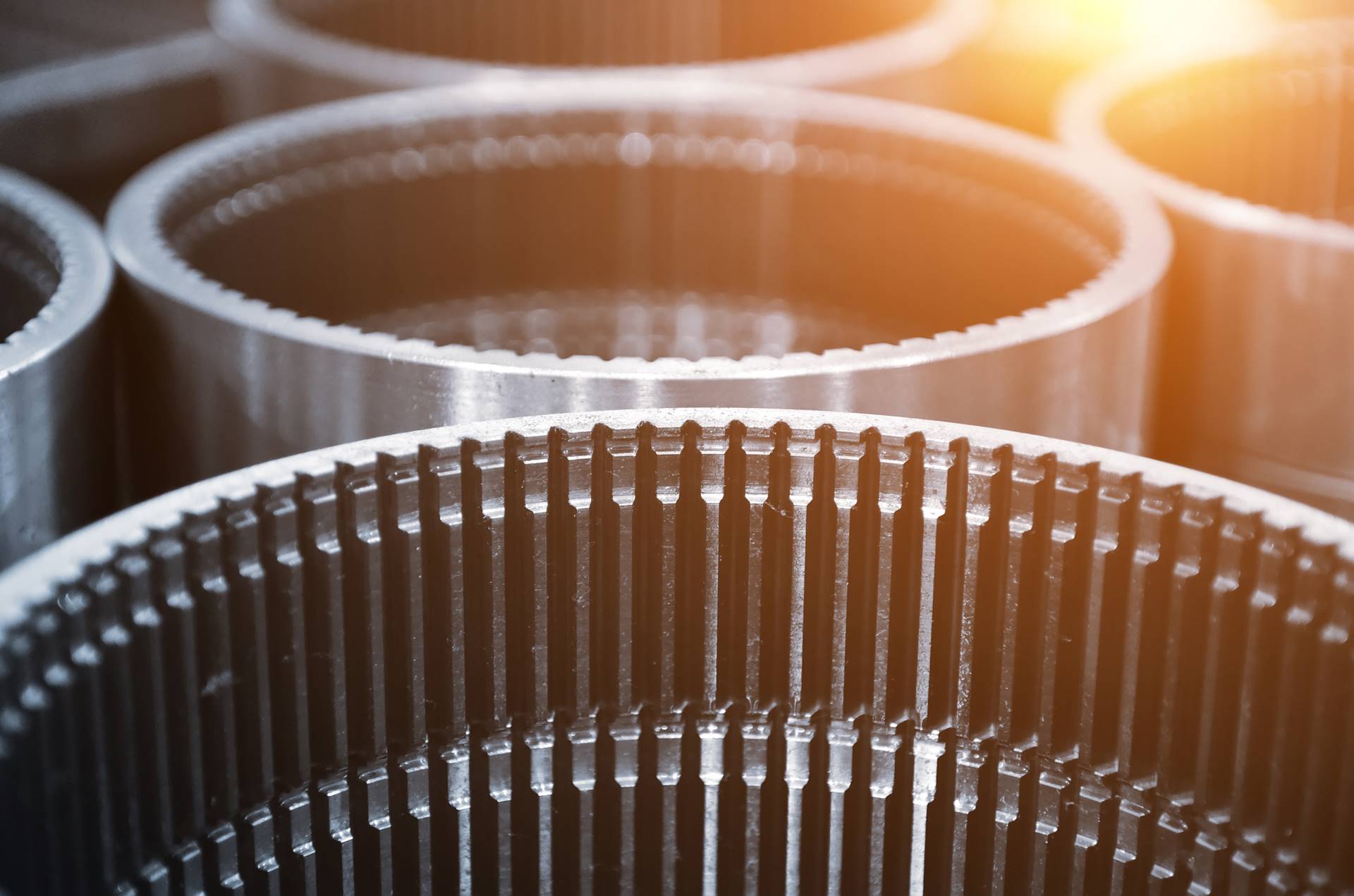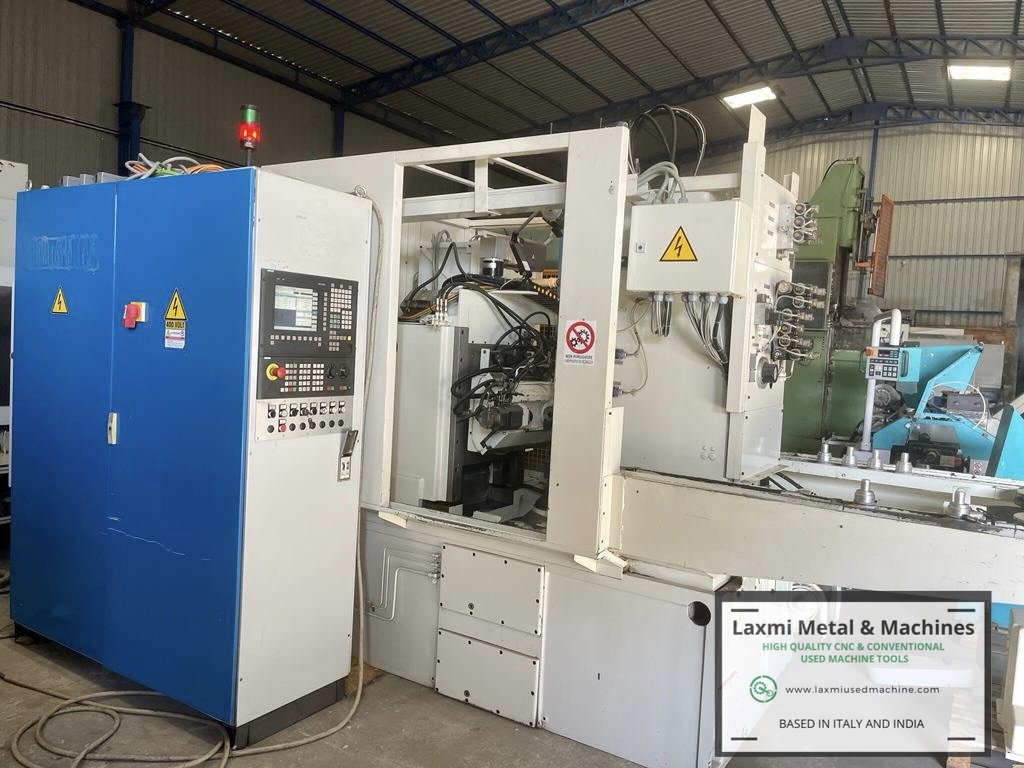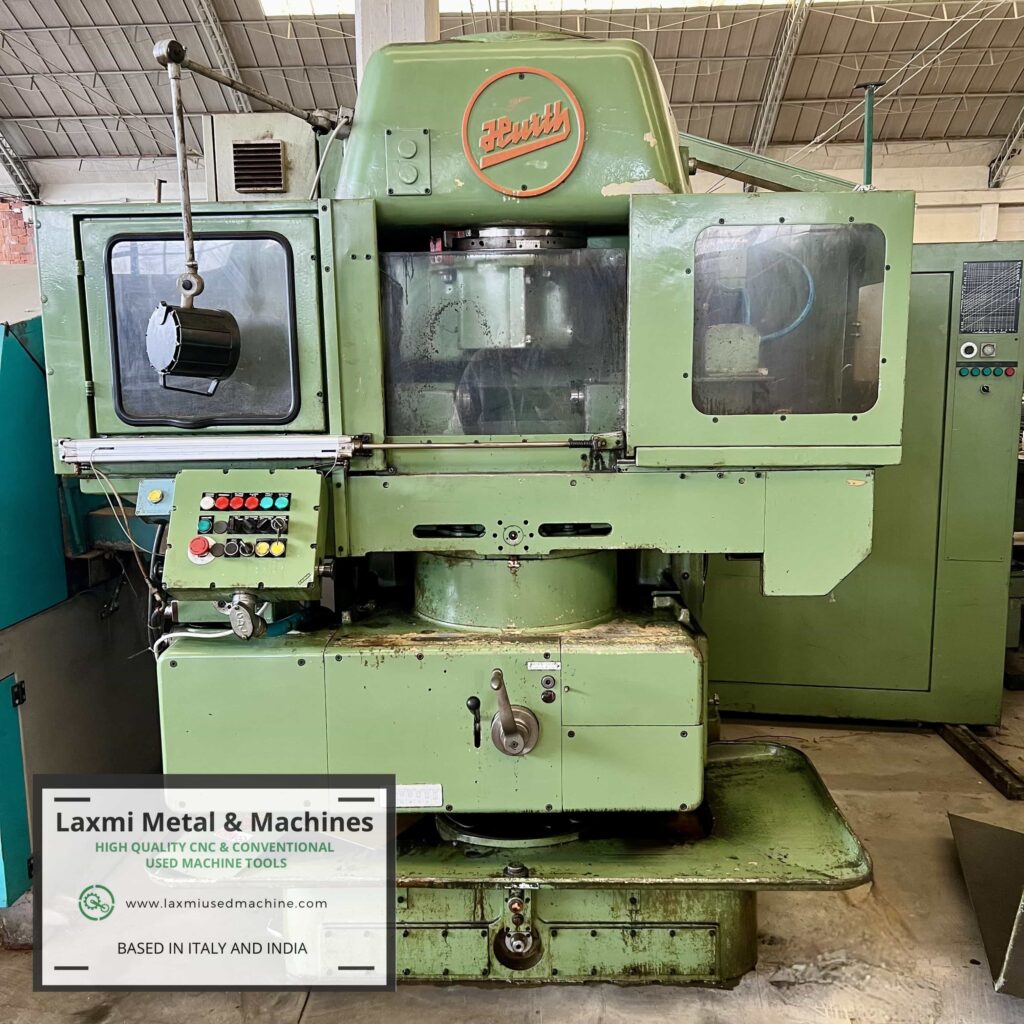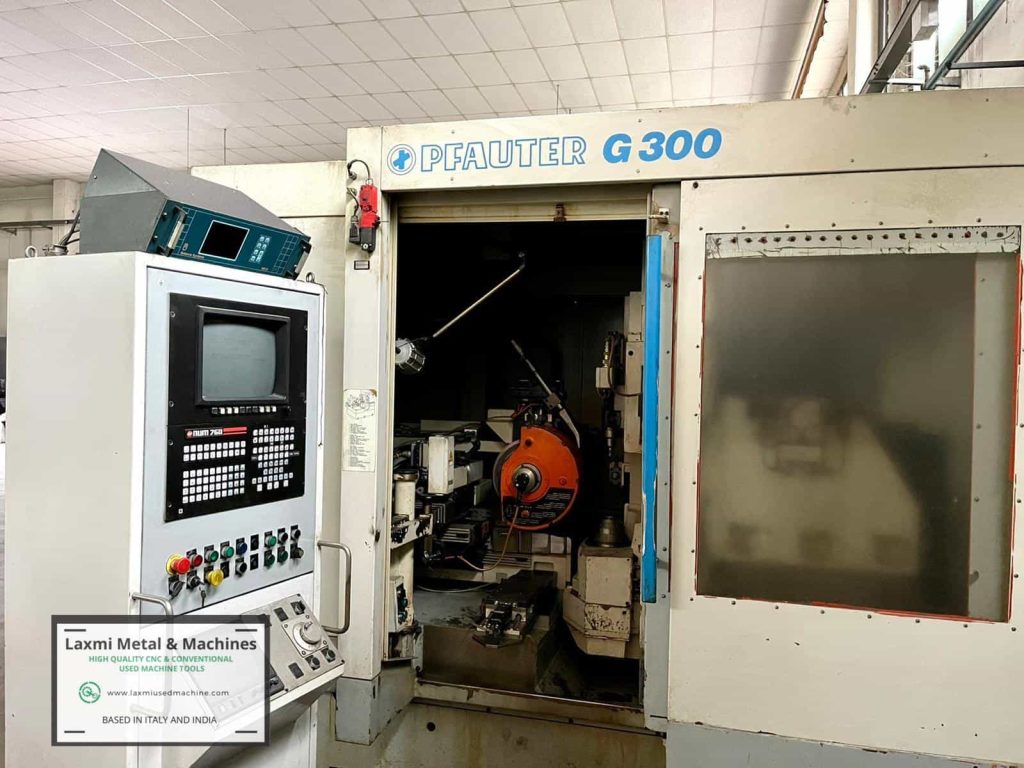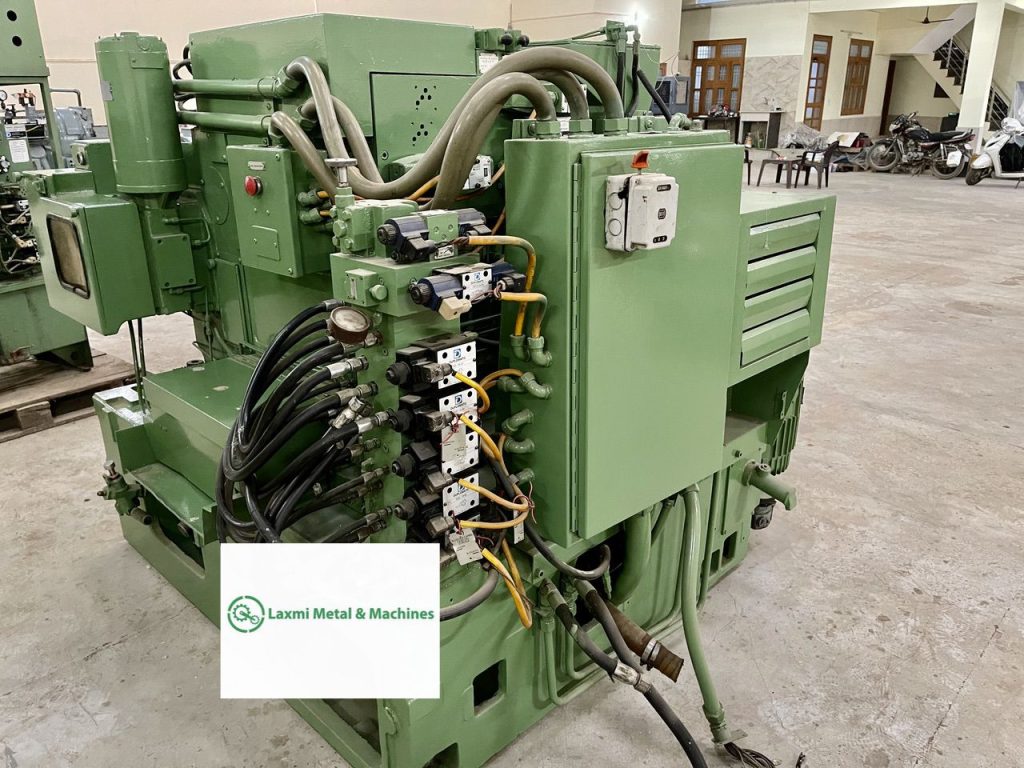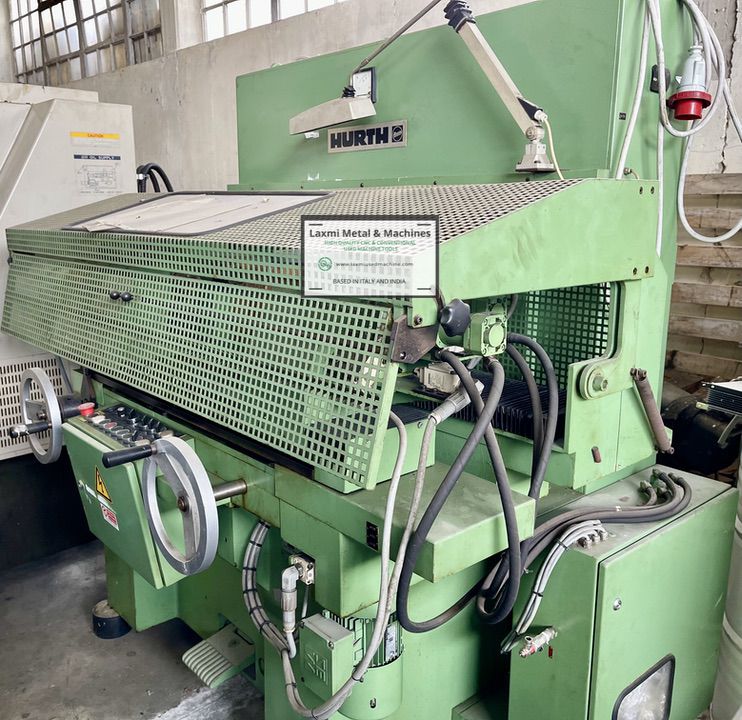LAXMI METAL AND MACHINES Italy and India can offer you a wide range of gear machining tools and gear machines. Gears are essential components that enable the smooth and efficient transmission of power and motion in various mechanical systems, like gears combined with ball screw, shafts and pinions, crown gears and also gearboxes for plastic industry, gearbox for mechanical industry, and more. They are widely used in industries such as automotive, aerospace, manufacturing, and robotics and more.
Achieving the required level of precision in gear manufacturing is crucial to ensure the optimal performance and longevity of these systems. This is where gear machining and gear machines come into play, offering advanced techniques and technologies to create gears with exceptional accuracy and reliability.
We will now take a look at what gear machining means and what kind of gear machines are there, knowing that LAXMI METAL AND MACHINES Italy and India have them all in store, as all the machine tools in India branches are directly imported from LAXMI Italy.
Gear manufacturing
Gear manufacturing refers to the process of shaping and finishing gears using specialized machines and tools. It involves several steps, including cutting, gear shaping, gear grinding, and gear polishing, to achieve the desired gear specifications. The objective of gear manufacturing is to produce gears with precise tooth profiles, accurate dimensions, and superior surface finish.
Gear machines are dedicated tools and equipment designed specifically for gear manufacturing operations. They are engineered to handle the unique requirements of gear manufacturing, providing high levels of precision, repeatability, and efficiency. Let’s delve deeper into some commonly used gear machining tools and their functionalities:
Gear hobbing machines
Gear Hobbing Machines: Gear hobbing is one of the most widely used gear manufacturing processes. Gear hobbing machines employ a cutting tool called a hob to generate gear teeth by gradually removing material from a rotating workpiece. These machines can produce a range of gears, from small to large diameters, with various tooth profiles, such as spur gears, helical gears, and worm gears. LAXMI has many gear hobbing machines in India and in Italy.
Here are some of the top class gear hobbing’s brand that LAXMI METAL AND MACHINES Italy and India can offer:
- Stankoimport gear hobbing;
- Pfauter gear hobbing;
- Lorenz gear hobbing;
- Hurth gear hobbing;
- Liebherr gear hobbing;
- Mikron gear hobbing;
- Comur gear hobbing;
- Samputensili gear hobbing;
- Hofler gear hobbing;
- Wmw gear hobbing;
- Niles gear hobbing;
- Demm gear hobbing;
- and many more.
Gear shaping machines
Gear Shaping Machines: Gear shaping machines are employed to create external and internal gears with high precision. In this process, a cutting tool called a shaper cutter progressively removes material from the workpiece to form the gear teeth. Gear shaping machines are capable of producing gears with complex shapes and tooth profiles, including involute and cycloidal gears. LAXMI has many gear shaping machines in India and in Italy.
Here are some of the top class gear shaping’s brand that LAXMI METAL AND MACHINES Italy and India can offer:
- Demm gear shapers;
- Pama gear shapers;
- Stankoimport gear shapers;
- Lorenz gear shapers;
- Hurth gear shapers;
- Liebherr gear shapers;
- Mikron gear shapers;
- Comun gear shapers;
- Samputensili gear shapers;
- Hofler gear shapers;
- Wmw gear shapers;
- Niles gear shapers;
- Demm gear shapers;
- and many more.
Gear grinding machines and CNC gear grinding
Gear Grinding Machines and CNC gear grinding: Gear grinding is a critical process that ensures the accurate and smooth meshing of gears. Gear grinding machines and CNC gear grinding machines employ abrasive wheels to remove small amounts of material from the gear teeth, resulting in precise tooth geometry and excellent surface finish. These machines can achieve tight tolerances and high gear quality, making them ideal for applications that demand exceptional precision, such as automotive transmissions and aerospace gearboxes. Gear grinding and CNC gear grinding process has recently overtaken the Gear Shaving and CNC gear shaving Process. LAXMI has many gear grinding and CNC gear grinding machines in India and in Italy.
Here are some of the top class gear grinder’s brand that LAXMI METAL AND MACHINES Italy and India can offer:
- Niles gear grinders;
- Reishauer gear grinders;
- Csepel gear grinders;
- Demm gear shapers;
- Pama gear shapers;
- Stankoimport gear shapers;
- Pfauter gear shapers;
- Lorenz gear shapers;
- Hurth gear shapers;
- Liebherr gear shapers;
- Comun gear shapers;
- Mikron gear grinders;
- Samputensili gear shapers;
- Hofler gear shapers;
- Wmw gear shapers;
- and many more.
Gear honing / lapping machines
Gear Honing / Lapping Machines: Gear lapping is a fine finishing process used to improve the surface finish and tooth profile accuracy of gears. Gear lapping machines utilize a combination of abrasives and a rotating gear to create a highly polished surface. This process eliminates imperfections and optimizes the gear meshing characteristics, resulting in quieter and more efficient gear systems.
Gear inspection machines
Gear Inspection Machines: Gear tester play a crucial role in ensuring the quality and accuracy of gears. These machines utilize various measurement techniques, such as gear tooth profile analysis, dimensional measurements, and surface roughness evaluation, to verify the conformity of gears to specified standards. Gear inspection machines enable manufacturers to detect and correct any deviations or defects in gears, ensuring optimal performance and reliability. LAXMI has many gear testers and CNC gear testers in India and in Italy.
Gear machining innovations
The advancement of gear machining and gear machines has been driven by continuous technological innovations. Modern gear machines often incorporate computer numerical control (CNC) systems, which enable precise control of machine movements and enhance automation capabilities. CNC gear machines can execute complex gear machining operations with minimal human intervention, resulting in higher productivity, improved accuracy, and reduced production time.
Additionally, the integration of advanced software systems, like SIEMENS 840D CNC or FANUC CNC, and simulation tools has revolutionized the gear manufacturing process. These tools enable engineers to design, analyze, and optimize gear geometries and tooth profiles, ensuring optimal performance and minimizing the risk of having a broken gear. Virtual simulations and modeling techniques allow for the evaluation of gear meshing behavior, load distribution, and stress analysis, enabling manufacturers to refine their designs before moving into production.
One of the key factors driving advancements in gear machining and gear machines is the demand for quieter, more efficient, and reliable gear systems. Automotive manufacturers, for example, strive to reduce noise and vibration in transmissions, while aerospace companies aim for lightweight and high-performance gears. Gear machines equipped with the latest technologies can meet these requirements by producing gears with superior surface finish, precise tooth profiles, and excellent dimensional accuracy.
Another significant development in gear machining is the use of alternative materials and coatings. Traditional gears were predominantly made of steel, but modern applications often require lighter materials with enhanced strength and durability. Gear machines now accommodate the machining of materials such as aluminum alloys, titanium, and composite materials. Advanced coatings and heat treatments are also applied to gears to improve their wear resistance, reduce friction, and extend their lifespan.
Furthermore, the adoption of Industry 4.0 principles and the Internet of Things (IoT) has enabled the integration of gear machining and gear machines into interconnected smart manufacturing systems. Gear machines can now communicate and share data in real-time, allowing for predictive maintenance, remote monitoring, and optimization of production processes. This connectivity and data-driven approach contribute to increased efficiency, reduced downtime, and improved overall equipment effectiveness of gear machining.
In conclusion, gear machining and gear machines are vital for the production of high-quality gears that meet the demanding requirements of various industries. The continuous advancements in gear machining technologies, such as gear hobbing, shaping, grinding, and lapping, along with the integration of CNC systems and advanced software tools, have significantly enhanced the precision, efficiency, and reliability of gear manufacturing and, ultimately, gear machining. As industries continue to evolve and demand more sophisticated gear systems, gear machines will continue to play a crucial role in meeting those needs. With ongoing technological innovations and the advent of smart manufacturing, the future of gear machining holds even greater potential for producing gears with unparalleled precision and performance.
Kontaktiere uns by calling +91 9896105058 (India) or +39 3487338048 (Italy), filling the form in our contact page, or through our online chat that you can find at the bottom of every page.


